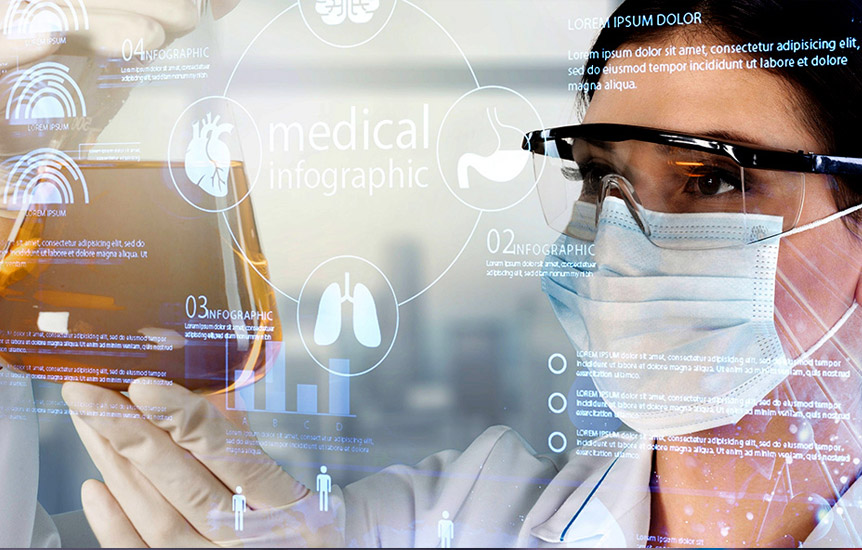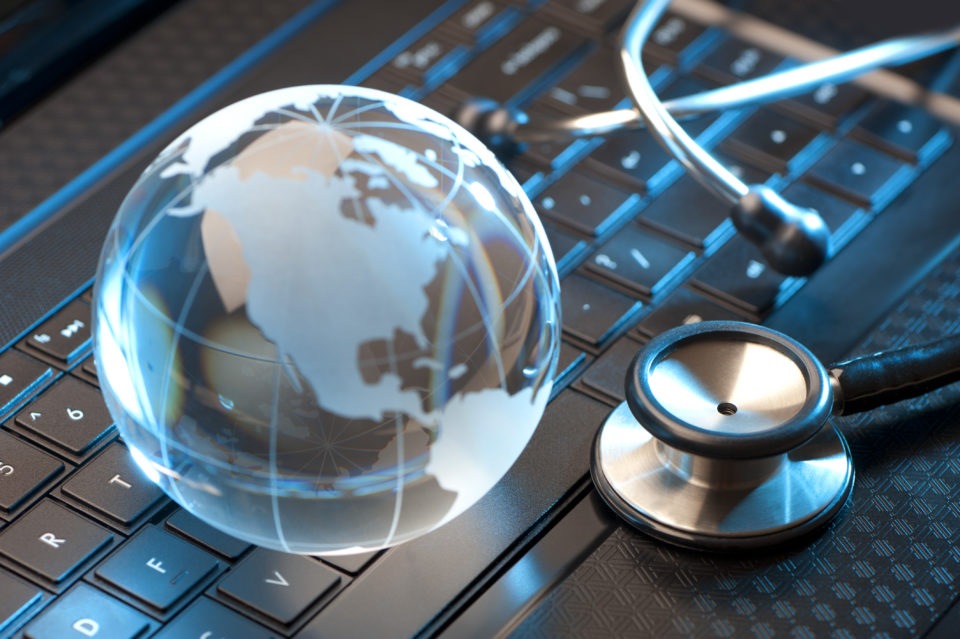 Back to all articles
Back to all articles
Blogs
Artificial Intelligence Revolutionizing Healthcare: 2020


With a predicted $6.6 billion reach by the next year, artificial intelligence is making major waves in the health tech industry that are hard to ignore. From robots performing detailed surgeries to bionic arms, AI and Machine Learning are offering extended value in specialty care including pathology, radiology, and pharma.
Artificial Intelligence is a lot more than robots, Alexa, and self-driving cars. It is a revolutionary technology benefiting various industries. The life-changing impact of AI in healthcare is driving innovations in clinical operations, drug development, surgery, and data management.
There are several practical examples we can come across that shows that exciting breakthroughs are awaiting by incorporating AI in medical services.
Artificial Intelligence Revolutionizing the Health Industry
Below are mentioned some applications that show how AI is revolutionizing the Health Tech Industry.
Robot Doctors
Thank Artificial Intelligence we have complex and intelligent robots—machines, unlike humanlike droids, that are designed to perform specific tasks.
A few years ago a robot in China cleared the medical licensing exam using only its AI brain. There are also semi-automated surgical robots being used to suture blood vessels which are as narrow as 0.03 mm.
Several state-of-the-art medical institutions and hospitals are awash with AI machines. These robots can operate with a precision rivaling that of the best-skilled surgeons and can autonomously perform complex and delicate dental procedures
These smart AI robots are also accompanied by transporting units, recovery, and consulting assistance. There are nurse bots and their job is to navigate around the hospital and supply medical goods.
Clinical Diagnosis
The disease diagnosis is more accurate and promptly with the assistance of AI algorithms. They can easily detect the diseases from the image-based test results.
Included in the list comes a trained neural network by Google’s DeepMind that could detect more than 50 types of eye diseases based on just analyzing the 3D rental scans.
Artificial intelligence can be highly effective in identifying real anomalies in the Health Tech world.
Another benchmark is the early detection and preemptive measure that can be taken with the help of AI technology. Several cancers including the notoriously difficult to detect—melanoma can be detected at an early stage with an 87% accuracy rate just by analyzing MRI scans and biopsy images. The entire credit goes to the artificial intelligence algorithms.
Precision Medication
The process of dispensing accurate treatment depending on the patient’s diagnosis, behavior, and characteristics is known as the precision medication method. With accurate diagnosis, it is equally essential to get accurate treatment for the best outcomes.
This process relies on the interpretation of vast volumes of patient’s data to determine the most effective medication. The retrieved data must include treatment history, hereditary traits, restrictions, and daily regime.
For machine learning and AI algorithms, data organization has become a strong and powerful suite. The data management systems powered by artificial intelligence seamlessly organize and store the bulks of information to drive out useful predictions and conclusions from the results.
The patient’s data sitting on hospital hard drive can be utilized to assist doctors in formulating precision medication for individual patients by artificial intelligence medication systems. These systems are also capable to deal with non-adherence with medical prescriptions. This process is carried out by determining the medical history of the patient the chances that the patient will take the medication as prescribed.
Drug Discovery
Drug development has cost several medical researchers billions of dollars in the process, which is a tedious venture. The ratio of these trials successfully reaching their way to pharmacies is extremely low.
Several pharmaceutical giants are teaming up with tech companies like Google and IBM which are tech experts and are already invested in artificial intelligence technology. The idea is to make a drug discovery program with deep learning and AI. The results are already showing great results.
Previously the method that was being practiced was a trial-and-error approach. Today the drug discovery is data-driven. By analyzing the existing medicine, patients, and pathogens, better cures are being emerged. With AI, existing medicines are being redirected to combat the new infections, and the process takes mere days rather than months or years.
Personal Health Assistants
Personal health monitoring is a successful example of Artificial Intelligence being practiced in healthcare.
With the joint effort of advanced artificial intelligence and the internet of medical things (IoMT), there is a host of consumer-oriented goods geared to promoting good health.
Wearables, smartphone apps, and discrete monitors are being seen monitoring and collecting data of the patients and also check their vitals. With the help of these smart gadgets, recommendations are made. The data stored in these devices can easily be retrieved and used by the relevant medical practitioner as per se.

Artificial Intelligence Is Here To Stay
Artificial intelligence will practice alongside health workers and will not replace doctors. The main idea of AI is to let healthcare achieve cheaper, efficient, and effective ways. With delivering impressive progress, Artificial Intelligence still has a long way to go on the healthcare industry.
With high expectations and hopes, artificial intelligence will be making the lives of the patients and as well as physicians easier.
The developments and expansions will not only be restricted to the health care industry but in other verticals as well.
If you are looking for a similar breakthrough in your business and want to make artificial intelligence the next big thing resulting in your success, then you are in the right place. Get connected to our amazing AI geeks and scientists and be amazed to witness the opportunities your business can achieve.
Don't hire us right away
talk to our experts first,
Share your challenges, & then decide if we're the right fit for you! Talk to Us
Partnerships & Recognition
Commitment to excellence






